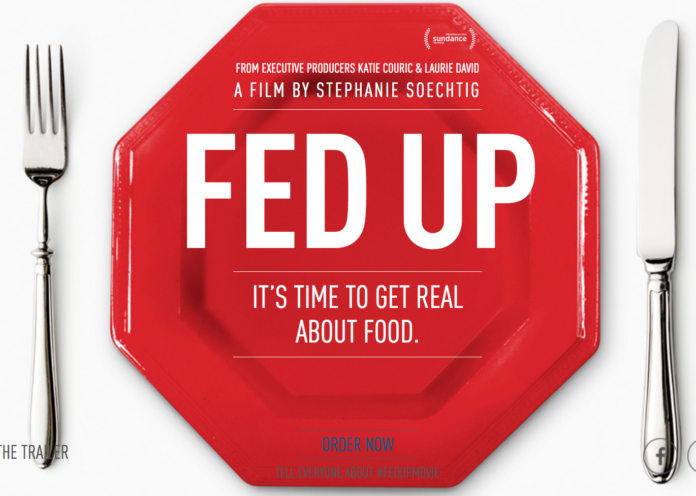Executive producers Katie Couric and Laurie David have delivered an admirable effort in the goal to improve the health of Americans in their movie, “Fed Up,” which pinpoints sugar as the principle arch enemy of wellness, much to the chagrin of some of the leading research scientists.
For starters, the movie is based around interviews with obese adolescents and their families, which are indeed sobering.
According to the film, added sugar, in any form is almost entirely responsible for the obesity epidemic sweeping the nation — not to mention the sharp rise in adult-onset diabetes. Ultimately, the film points a long finger at the food industry, which heaps a sugar-laden junk food tsunami on an unsuspecting public.
But not everyone loves the movie — including some of the best minds in health and wellness.
Consider T. Colin Campbell, PhD, who has been at the forefront of nutrition research for over forty years. He wrote: First, for the film’s credits. It mainly speaks of a problem that almost everyone agrees on—the sickening sweetness of too much sugar, especially for children. Who can disagree? But this message seems to me to be the beginning, the middle and the end of the film and it took almost two hours to hammer home what appears to be an obvious truth. A second message blames authorities (especially a few academics) for shoving so much sugar down our throats, a thought shared by many discontented citizens these days.

T. Colin Campbell, PhD
Co-Author of The China Study
Professor Emeritus of Nutritional Biochemistry at Cornell University
“So, now, let’s look at some stories that failed to make it into the film. First, there is the title. It provides gravitas suggesting that the film is going to tell us what is the real cause of the big health problem that we suffer. They say it’s our excessive consumption of sugar that causes obesity that causes, in turn, other diseases, although they mostly left it to our imagination what these might be. Our really big health problem is obesity, so the film says, and if we could only eliminate this heavy-weight problem, our sickness would disappear. And, we can do this, of course, by eliminating sugar from our diets. So simple…..!
This is a very reductionist idea that seriously short-changes the far more comprehensive diet and health connection…
“I know of no evidence that were we to eliminate all sugar from our diets, presumably leaving the rest of the diet the same, we could rid ourselves of disease and restore our health.”
“It may come as a surprise but the evidence showing sugar to be a major factor in obesity is relatively weak. There certainly is some evidence but closer examination shows that much of this evidence may be attributed to its contribution to calories or other factors not measured, an interpretation shared by both research groups. However you may choose which side of this debate you prefer, I am inclined to favor the argument that sugar is problematic[1] even though the effect is less scientifically qualified than we all tend to believe.
“The film hammers the food industry who contributes to this ‘sugar-dependent’ obesity problem—an understandable observation—but reserves its most critical comments for government advisory panels who make food and health policy. They begin with the 1976-1977 McGovern Committee of the U.S. Senate who initially advocated a “low fat” diet, a position affirmed by a few more advisory committees on diet and health during the 1980s and 1990s. According to the film, consumers entered this epic journey adopting low fat diets and actually got fatter! This happened, so they say, because we replaced the missing fat by increasing the consumption of more and more sugar-dense products.
“False! During this period (from about 1975 to about 2000), I know of no evidence that we actually ate less fat. If anything we consumed more fat (reviewed in The China Study, page 95[3]). Moreover, the film refers to ‘low fat’ diets as those containing about 30% of diet calories that was recommended by policy makers. This is not low fat, at least when compared to the whole food plant-based (WFPB) diet, at about 10-15% fat. The WFPB diet, of course, also is rich in nutrients and related substances now known to prevent and/or reverse a wide spectrum of health problems—including obesity.
The missing message in this film is that concerning the effects of a multiplicity of dietary factors/nutrients, which prevent a wide range of seemingly diverse diseases and which does so remarkably quickly—days to a few weeks…”
Much to chew on. Good awareness about the downside of sugar but a total absence of how our overall eating approach — The Standard American Diet (SAD) — impacts total health.
Check out the trailer here.




































